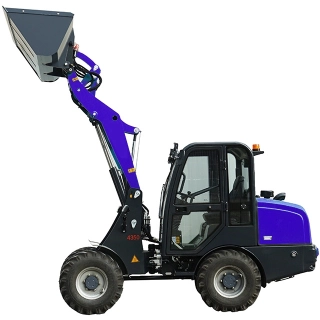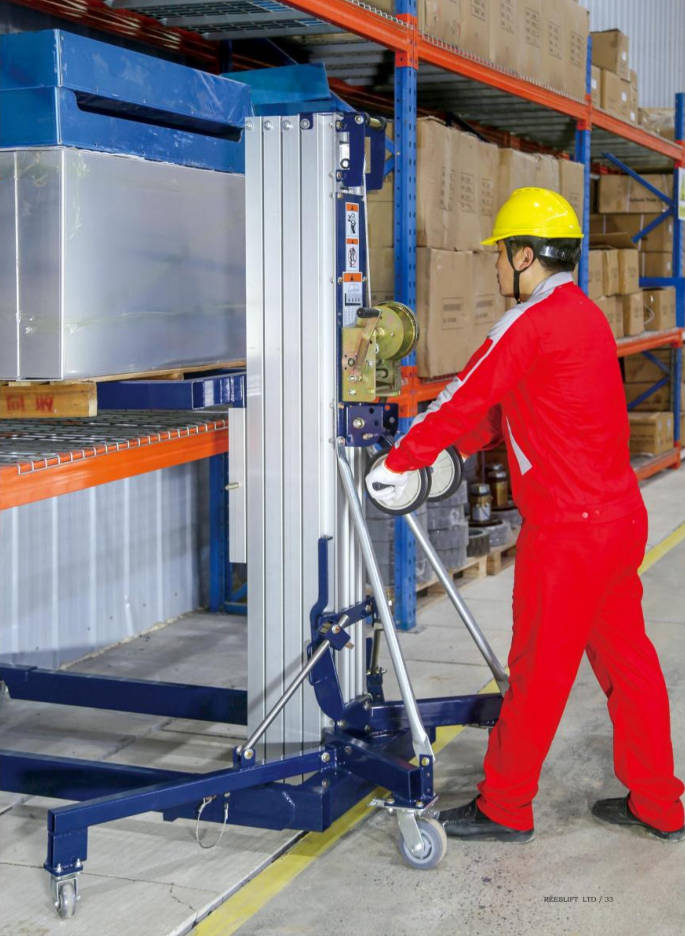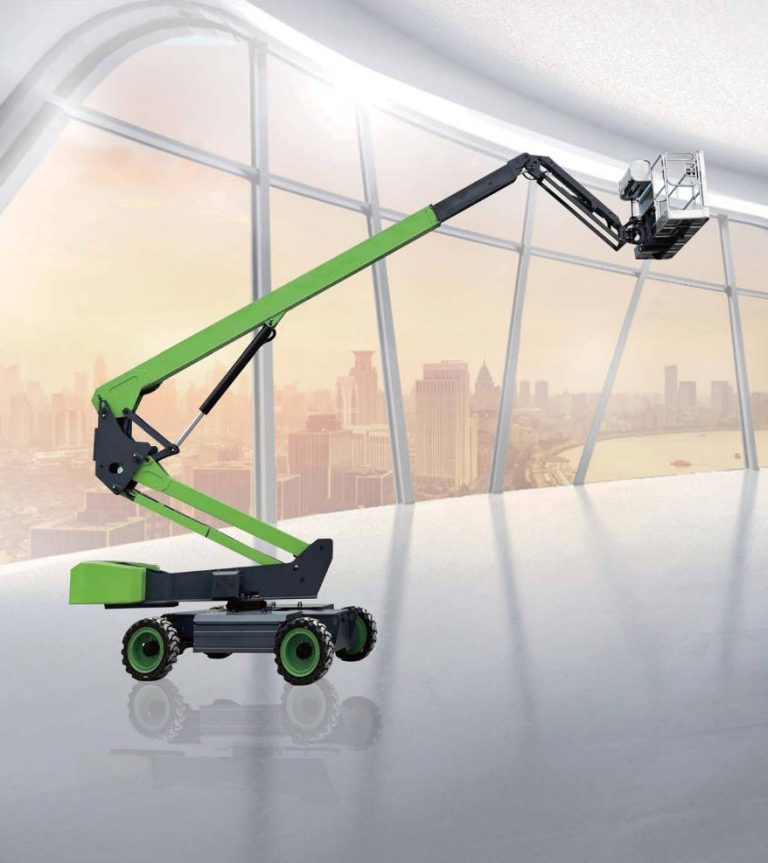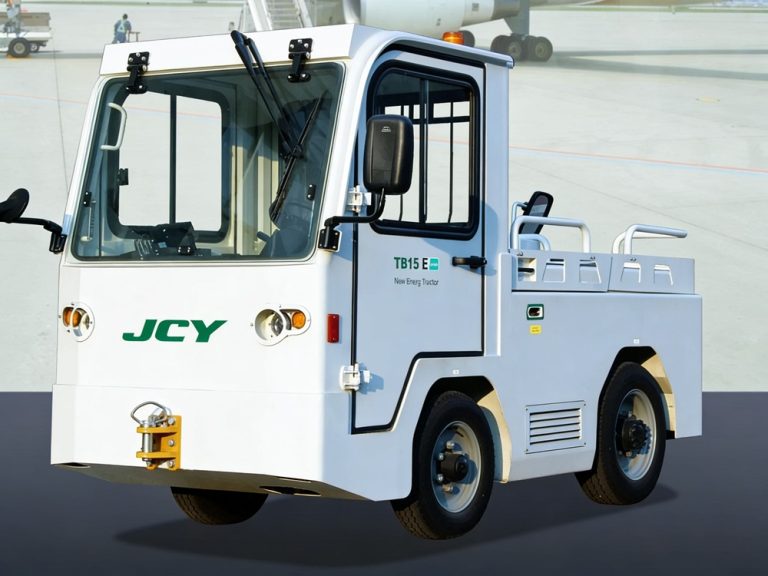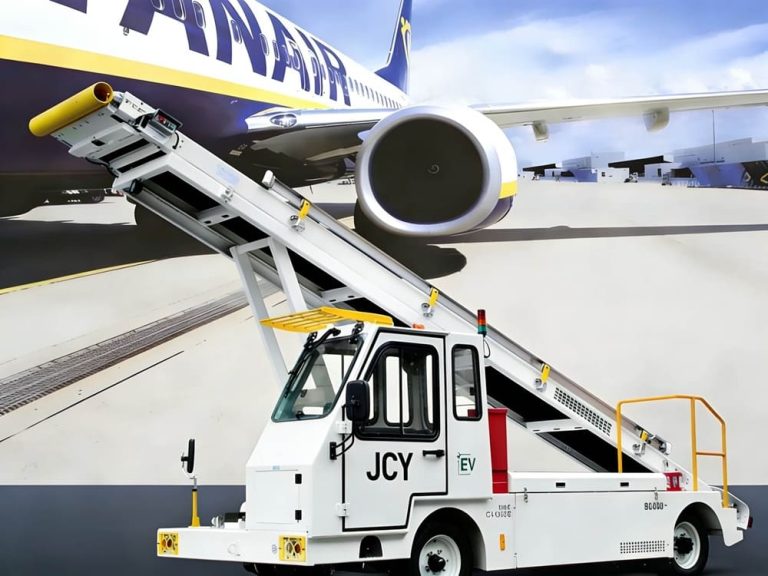Have you ever looked at a work site full of dirt, rocks, or junk? You wonder how to deal with it without wasting time or money. A wheel loader comes in handy here. It acts like a real helper. If you work in building, yard work, or farming, knowing why to choose a wheel loader for your project can help avoid problems later. These machines are not showy. But they handle tough jobs well. Let’s look at it step by step. From simple facts to real examples. This way, you can decide if it suits your needs.
Understanding Wheel Loaders: The Basics
What is a wheel loader? Think of a sturdy machine with a large bucket in front. It moves on four wheels. It scoops, lifts, and drops stuff easily. Unlike small steer loaders or diggers, wheel loaders work best in wide areas. There, you need to shift things quick and over distance. They handle many tasks. One time, they fill trucks. Next, they smooth paths.
Consider the usual build. A strong motor runs the fluid system. That system moves the front bucket. Wheels let it roll over bumpy ground. They don’t damage the area like tracks do. From talks with site bosses, the main draw is dependability. You start it up. And it runs steady, day after day.
Key Features That Make Them Stand Out
Wheel loaders have traits that fix common job issues. Here are some main ones:
- Strong Motors: Often from good sources, like Japan. They give steady pull for hard loads. They meet clean air rules without losing strength.
- Fluid Systems: Easy and exact. They let you raise, tip, and move without trouble. A special drive type gives better handling, especially on rough land.
- Fast Swap Tools: Change buckets to forks, grabs, or cleaners in no time. This makes one machine do many jobs. It cuts down on extra gear.
- Driver Ease: Cabs with shields, comfy seats, and simple fix spots. Like a hood that flips open for quick checks.
- Movement and Balance: Wheel setup deals with different grounds, from mud to road. It stays steady with heavy stuff.
These are not just extras. They keep work going smooth. For example, on a build I heard of, the fast swaps let them go from picking dirt to spreading it. No wait time. Small stuff like that helps a lot.
Top Benefits of Using a Wheel Loader on Your Project
Why pick a wheel loader for your project? Instead of more workers or smaller rent gear? Speed is key. These machines make work faster by moving loads that take people ages. Picture filling a big truck with stones. A wheel loader does it in a few goes. Not slow shovels.
It handles many jobs too. Builders use them to dig bases, fill holes, or clear mess. Farmers move food or waste piles. Mine workers shift rock. The gains? Less pay for help, quicker finish, and easier on folks. Numbers from work studies show sites with wheel loaders cut move time by 30 to 50 percent. It depends on size.
Tough build is big too. They last through dust, wet, and hits that stop weak machines. Gas use is smart. New motors use less while following laws. This keeps costs low. Safety? Shields and steady design cut dangers on crowded spots.
But it’s not all great. Wheel loaders need room to turn. So small city areas might need tiny types. Yet for most jobs, the good sides win over that.
Comparing Wheel Loader Sizes for Different Projects
Wheel loaders come in different sizes. Here’s a simple chart to match them to work:
| Size Group | Lift Amount | Good For | Sample Gains |
|---|---|---|---|
| Small | Up to 1,000 kg | Tiny spots, yard care | Easy to move, light on ground, simple to haul |
| Middle | 1,000-5,000 kg | Regular builds, farm tasks | Good mix of strength and speed, many tool options |
| Big | Over 5,000 kg | Hard industry, rock digs | Tall lifts, huge scoops for lots of stuff |
To choose right? Think about your ground and what you carry. A small one works well in home fixes. Big ones handle rock pits.
Real-World Applications: Where Wheel Loaders Shine
Wheel loaders are not just ideas. They prove themselves on sites. In builds, they prep land. Say you make a storage building. Use one to flat the area, put rocks in mixers, then move stacks. One story I know was a road fix. The wheel loader took old blacktop bits. It sped clean up. Pavers started sooner.
Farms benefit as well. Growers load grass or bundles without hard work. Seen a wet field after storm? Wheels hold on better than expected. They keep things going.
In shipping or docks, they rule box areas. They shift items fast. Mines? They fill trucks in bad spots, all day. The secret is change ability. With add-ons, one unit does several roles. This saves on gear costs.
And one thing: I saw jobs stop because of bad upkeep. Wheel loaders with easy reach spots, like open hoods, avoid that. They stay running more.
Tips for Integrating a Wheel Loader into Your Workflow
To start? Check your area first. Bumpy land? Pick ones with tough wheels. Want exact work? Go for good fluid setups. Teach drivers. It helps safe and fast. Plan for gas, but good motors balance it out over days.
Introducing JinChengYu as Your Wheel Loader Supplier
In Qingdao, China, since 2002, JinChengYu Machinery does well in handling gear. They send to places like South America and Europe. They focus on good machines like wheel loaders. Their setup includes sales, rents, and fix help. Think parts and upkeep aid. They stick to high quality. They check all before send. They allow custom changes, like marks. If you grow or need one, their way makes good ties. Your job gear stays strong.
Conclusion
To sum up, why choose a wheel loader for your project? It comes to quick work, strength, and fit that keeps stuff going. From little tasks to large pushes, these units help where needed. If steady and save money count, give it a try. Your schedule and cash will like it.
FAQs
Why should I choose a wheel loader for my construction project?
Wheel loaders do great at loading and shifting stuff fast. They cut hand work. For example, on build sites, they deal with dirt and rocks well. They handle bumpy ground easy.
What makes a wheel loader better than other equipment for my project?
Not like diggers that focus on holes, wheel loaders give many uses with add-ons. They move on wheels, good for open spots. They offer balance for big lifts. This makes them top for mixed jobs like farms or digs.
How do I know if a compact wheel loader is right for my project?
If room is small or loads light, like under 1,000kg, a small type works fine. It turns well in home or yard tasks. Traits like quick swaps add use without too much space.
Are wheel loaders cost-effective for long-term projects?
Yes. Their tough build cuts stop time. Smart motors keep gas low. Over weeks, saved time on moves often beats start costs. Especially in busy work.
Why choose a wheel loader with quick-change attachments for my project?
These allow fast tool switches, from scoops to lifts. They fit changing site needs. One unit does more. It saves rent extras and keeps work smooth.

